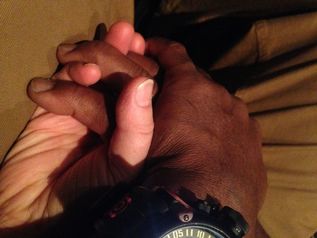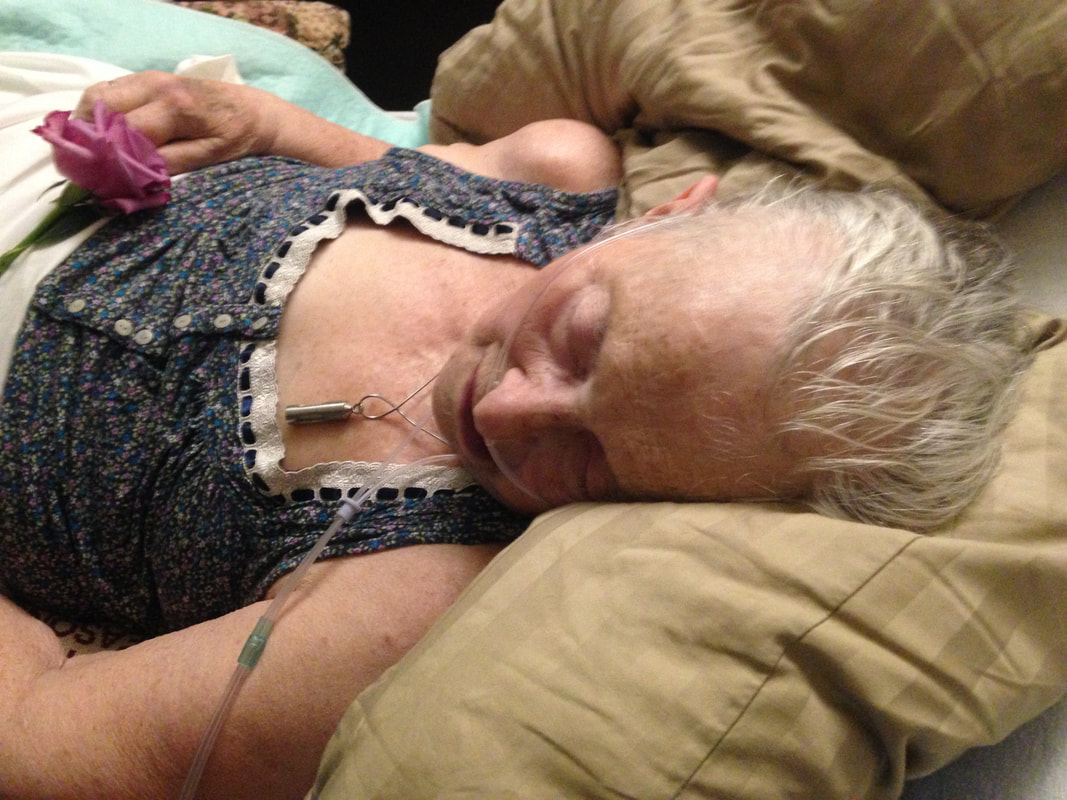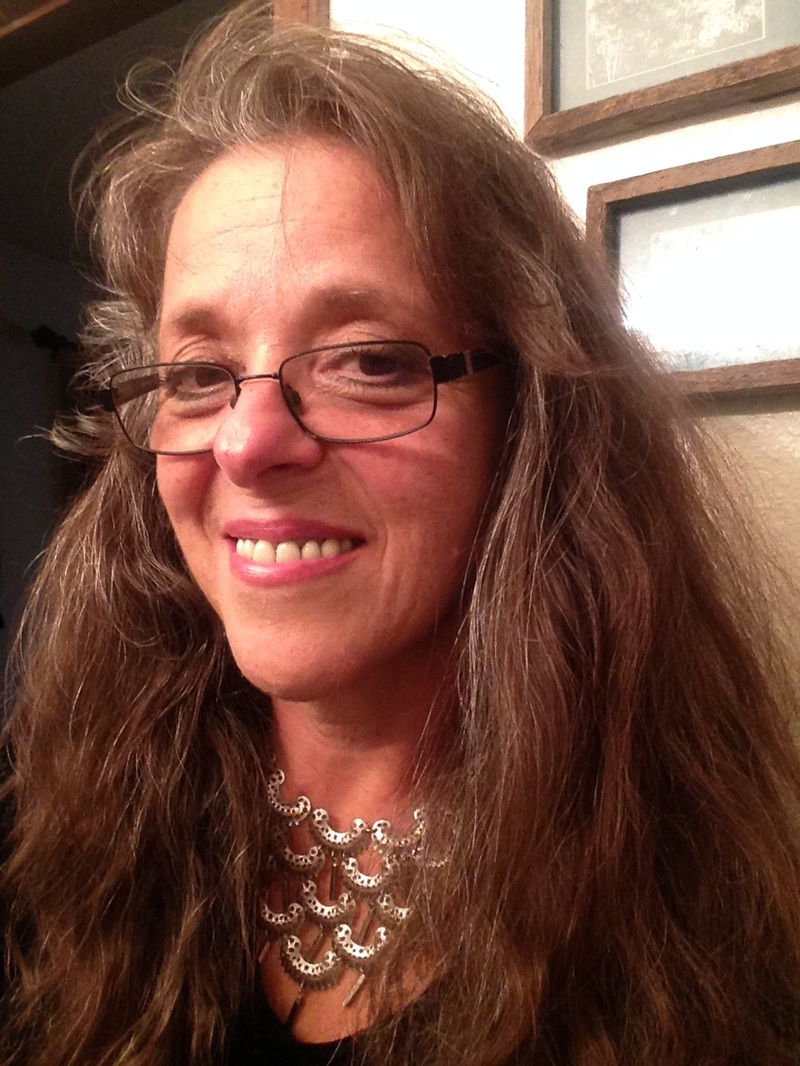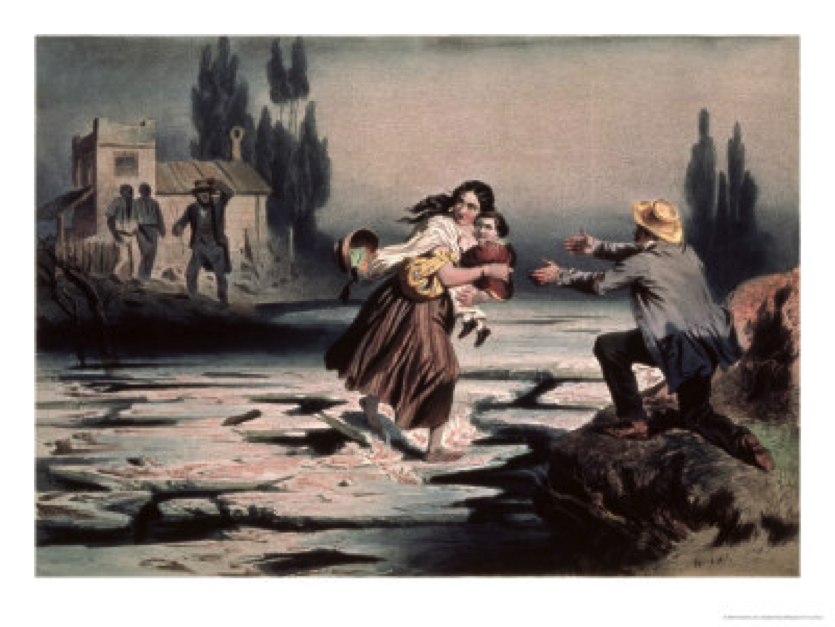|
“I’ll have a fish sandwich please.”
On a hot day in July 1985, I was met with a blast of cool air as I passed through the door out of the blazing streets of Harlem into a world of fish and ice. Tables were piled high with an array of snapper, eel, shrimp, crab and other fresh sea food I found hard to name. The concrete floors were wet with melting run-off as workers in long aprons and boots called to one another in Korean. I craved a whiting sandwich, white fish rolled in cornmeal, deep fried, doused with ketchup and slapped between two slices of white bread. Heaven. You could wait for it to be served up sizzling from the fry basket at the front counter. As a twenty-something Italian-American in a Korean fish market in Harlem, I was a bit out of place. But I had found Jesus in a Black Church on 7th Avenue, and this community was now my home and had come to accept my presence. I watched the man behind the counter as young women do, taking note of his smooth skin, dark eyes and straight, black hair. He was my age and spoke with a heavy accent. Periodically, he cast his gaze my way and I realized, he was watching me. What did he see? I, of course, was not the epitome of Asian beauty. What did he like? My long, dark blond locks? My big, brown eyes? Small waist? Full hips? I certainly didn’t mind the attention. He bagged my sandwich and as he handed it to me, our eyes met. “You…..hab mustache,” he said in the best steamy English he could muster. I raised an eyebrow. I did indeed, have a mustache. As many Mediterranean women do. I was a bit put out by his comment. What was this? An accurate observation but to what point? Where could this possibly go? “I do,” I said. “And?” I refrained from sucking my teeth. “That sexy.” “Oh. Um……thank you?” I was stunned. Speechless. This was not what I expected. Not knowing how to react I paid my bill, flashed my best bewhiskered smile, and left, skipping all the way home. My facial hair? Of all things, he liked my facial hair? How bizarre. But, how nice. Weeks later, I wandered into a different fish market, with different Korean men, and waited at a different counter for another fish sandwich. I chuckled, thinking about that comical previous encounter as I watched the cook. Waiting for the fryer to finish, this man decided to make small talk as he wiped the counter directly in front of me. Quietly, so only I could hear, he said, “You…..hab mustache.” I raised an eyebrow, again. “Yes. I do. And?” “Thaaat sexy!” For real? Again? Again I’m hearing this! Of all things he could find sexy, it’s my mustache? I was hearing it from yet another Korean man. Asian men are so smooth skinned with little body hair. Italian women are often known for theirs. Why was facial hair considered alluring? Perhaps because people could be attracted to standards of beauty that are different from their own? I would never look at Korean men again without a smile crossing my lips. Through their eyes, I was learning to see myself as beautiful. As I lived and moved along the streets of upper Manhattan, my understanding of beauty continued to be shaped by the people around me. It was common at the time for Black women in the neighborhood and my church to not shave their legs. How freeing for me! One less thing to have to do. I gladly followed suit, and left my legs bare and bushy, or in panty hose and heels in my Sunday best. I fit right in, albeit perhaps a bit furrier than my Black sisters. One day, walking down the street with my legs flashing in sun dress and sandals, I passed two young Black men going the opposite direction. They had not gotten far behind me when one said to the other, “Did you see that? A big-legged hairy Caucasian.” I had to hold back from belly-laughing out loud. Ha-ho, that would never be considered a compliment in the community where I used to live. Yet here in Harlem, it was flattery. A standard I was heretofore unaware of, was deemed desirable. I began to look with new eyes at the men and women in the circles in which I moved. With greater and greater appreciation, I embraced the distinctions, including the loveliness of body shape, hair style, facial feature, and skin tone, which also included an increasing acceptance of my own body image. (Though I have since discovered the wonders of electrolysis and now happily live life sans mustache.) In Revelation 7:9-10, the Apostle John says: After this I looked, and there before me was a great multitude that no one could count, from every nation, tribe, people and language, standing before the throne and before the Lamb. They were wearing white robes and were holding palm branches in their hands. And they cried out in a loud voice: “Salvation belongs to our God, who sits on the throne, and to the Lamb.” I have no desire to be colorblind, to go backwards and minimize the artistry in how God made each of us unique. Revelation shows us a diverse multitude with distinctive people groups that will stand before God and worship Him in unison. If God saw fit to include His notice of our differences in His Word, then let us not fail to delight in His handiwork and treasure the variety in our fellow humans. There is no need to be blind to color. There is a need to see with new eyes, and love one another, exactly as God created us.
3 Comments
Opening my essential oils, I poured frankincense and rubbed it into my mother’s hands. How much longer did I have to feel them warm when touched? I cupped my hands around her face and drew my fingers through her hair to surround her with the calming scent.
On Saturday, she was still able to do this herself, slowly drawing her hands up to her face to smell the musky fragrance in numerous short sniffs. “Mmm…mmm….mmm…” Soft murmurs of contentment emitted from her throat. Small pleasures so important in these moments. I had lifted the blankets from her legs, a long scar etched vertically across each knee. Her legs were now permanently contracted as post-polio played out its ravages on limbs that could no longer support her weight. I rubbed drops of lemongrass into her bulbous knees and atrophied calves. The perfume filled the room and drove out the stale nursing home odors. I ran my thumbs down her arches, gently kneaded the ball of each foot, and pulled my thumb and finger up each toe. She smiled. “Mmmmm…..” Such precious time left, to make my mother smile. But that was two days ago. The nurse switched on the light as she entered the room, abrupt and intrusive, forcing me to surface from sleep. “Here Barbara,” she whispered, leaning over my mother. “Here’s some medicine for you.” She slipped the syringe under Mom’s tongue and administered the morphine, her gentleness countering my defensiveness to guard my mother’s comfort. Our two air mattresses took up the rest of that small room. Air mattresses were for sleep overs and camping. Not nursing homes. Well, I guess now, for nursing homes. Bridget stirred next to me. Dee turned over in the other corner of the room. I could see Mom, the head of her hospital bed elevated so she would not choke on the build up of fluid she could not expel. She was listing to the left, no longer able to right herself. “Ohhhh Mom……” I whispered. My stomach tightened. With every breath her body surged up and down, her lungs struggling to expand against gravity. I got up to have the nurse help me re-position her as we’d done repeatedly the past 3 days. The congestion in her chest gurgled as loud as the humidifier on the oxygen tank next to her. Once again, her skin was too warm. “Can you get a temperature for me? And O2 sats?” I waited for information I knew was coming. The nurse looked at me with understanding eyes. “Her temperature is 103. And her O2 is…….56.” How long can the brain function with oxygen that low? How long will a body fight to live? Okay. She is not aware of this. But I am. With those numbers my sisters jumped up. One ran warm water in a basin and the other grabbed washcloths, while I removed the blankets. We worked in silence in actions that had now become routine. Dipping the wash cloths in. Wringing the water out. Laying them on my mother’s arms and legs. “Is this fever due to an infection?” I’d asked the head nurse. “No honey. This is what happens when organs start to shut down. Not for everyone. Just for some. Our job now is to make her comfortable.” When a nurse puts her arms around you, it gives a hug whole new meaning. She eases the pain of the living, and the dying. Morphine in human form. For the next hour, we worked to bring down Mom’s temperature. We stroked her face, kissed her and whispered in her ears. “Mom. You don’t have to stay you know. We’re here. You can go. Whenever you’re ready. We’ll be okay. I love you, Mom. You don’t have to stay.” We took turns lying next to her, putting arms around her, re-configuring her pillows and moistening her lips. I bent down to listen to her heart. The time was coming when I would no longer be able to hear life beating in her chest. Women, taking care of a woman. Touching this one who was the source of all three of us, and once carried us into life. It was our turn to carry her now, and see her birthed through death, into new life. “Hey, look at her eyes. They’re different,” said Bridget. “Something’s changed.” For all of Monday and into Tuesday, Mom’s eyes had been mere slits, barely open in a coma-like state. Now, they were wide open. Wide open. Looking straight up. I could see the full beauty of her green eyes again. Fixed. On what? Suddenly her mouth filled with the fluid she had long been fighting to cough up. We suctioned it out and cleaned her face. Recognition hit us. “This is it,” said Bridget. “Don’t miss this.” Then, as the muscles relaxed and death began to descend, with no ability to take in air, the weight of the atmosphere bore down on her tired lungs. All the congestion she had been drowning in, came pouring out. Free of it. Finally. We wiped it away. I suctioned her mouth again, knowing what was next. We stood there. Silent. Watching. One huge gasp. Exhale. Wait. Another huge gasp. Exhale. Wait. Wait. Wait. Silence. It was finished. “Go Mom!” Our sister voices filled the room! “Yay! Yay, yay, yay! Go Mom. Go, go, go! Good-bye Mom! I love you! I love you Mom! Good-bye Mom! You’re done with this old body! You don’t need it anymore! You’re free. Fly away Mom! Fly away! Fly away!” Immediately, her body changed. The wrinkles left her face. The furrows left her brow. The color left her skin. The warmth left her hands, and the light left her eyes. Mom was gone. Only her shell remained. It was strange to feel elation in such a moment. It was not what I’d expected to feel. The animation that the spirit gives the body is a compelling force. To see the void left when the spirit withdraws is startling. Surprising. I kept looking up to the ceiling, then back to the bed, wondering what my mother was seeing from her new vantage point above as her daughters danced around a body in which she no longer dwelt. So why should I stare down at her form? I looked up. I reached up. And smiled. Good-bye Mom. I love you. I’ll see you soon. October 10,2017 saw the passing of the woman who raised me. I will never again in this life, call someone "mother". If this had been my husband or my child, I'm sure I would have felt differently, but she had lived for 87 years and was ready to go. Through Christ, we triumph over death. If we stand fast in our faith, we can peer into the infinite and have nothing to fear. Witnessing her death was a brush with divinity. It was a sacred moment to behold the departure of a human soul, and its glorious arrival in eternity. "For the perishable must clothe itself with the imperishable, and the mortal with immortality. When the perishable has been clothed with the imperishable, and the mortal with immortality, then the saying that is written will come true: “Death has been swallowed up in victory.” Where, O death, is your victory? Where, O grave, is your sting?” - 1 Corinthians 15: 53-55 |
Susan Parlato RevelsArchives
June 2024
Categories
All
links to other sites
www.abuacademy.com
|



































 RSS Feed
RSS Feed